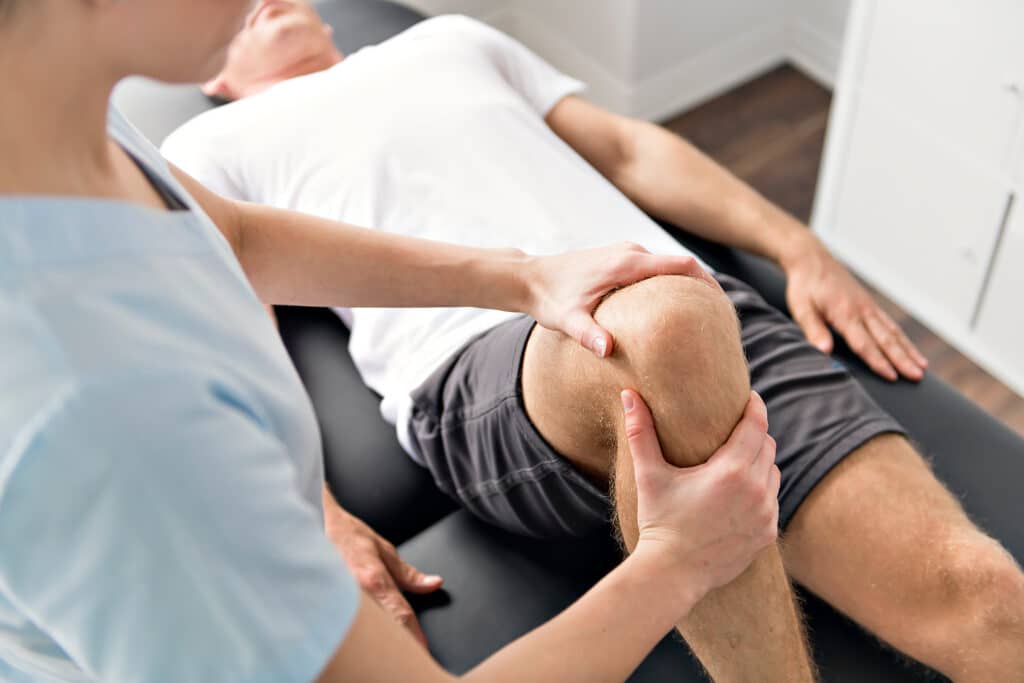Lateral Collateral Ligament (LCL) injury is an injury to the ligament on the outer side of the knee. It can be a stretch, partial tear, or complete tear of the ligament.
The LCL goes from the top part of the fibula (the bone on the outside of the lower leg) to the outside part of the lower thigh bone. The ligament helps keep the outer side of the knee joint stable. The LCL is usually injured by pressure or an injury that pushes the knee joint from the inside, which results in stress on the outside part of the joint.
After a period of keeping the knee protected, you should do exercises to strengthen and stretch the knee. Physical therapy may help you regain knee and leg strength. Surgery is often not needed when only the LCL has been torn. However, this ligament is often injured during significant trauma, including knee dislocations.
It is common for injuries to the LCL to occur with other ligament injuries. These are usually significant injuries, and you should seek medical help immediately. When injuries to other ligaments also occur, surgery is needed to prevent future instability of the knee.
The posterolateral corner (PLC) of the knee is a complex area of the knee formed by the interaction of multiple structures. Injuries to the posterolateral corner can be debilitating to patients and require prompt recognition and treatment to avoid long-term consequences. Injuries to the PLC often occur in combination with other ligamentous injuries to the knee; most commonly the anterior cruciate ligament (ACL) and posterior cruciate ligament (PCL).
As with any injury, an in-depth understanding of the anatomy and functional interactions of the posterolateral corner is critical to diagnosing and treating injuries here.

